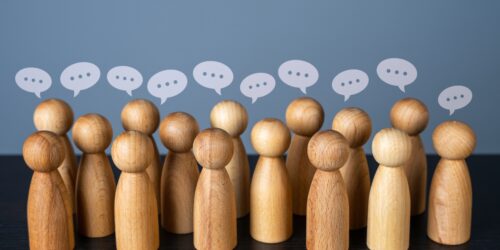DSA Press release
The Down’s Syndrome Association has released new resources to support the well-being of children and adults who have Down’s syndrome, following a 40% rise in calls to its Helpline since the COVID-19 pandemic began.
Research published by the Government last week has shown the impact of COVID-19 on the mental being of the nation. Sadly, we know that individuals who have a learning disability are at a much greater risk of experiencing a health inequality and have a higher prevalence of psychiatric illness in children and adults compared to the general population.
The current situation of living through the COVID-19 pandemic has been especially difficult for people who have a learning disability, where feelings of isolation have been magnified and many of the strategies suggested to help us cope with stress are not accessible to people who have a learning disability.
The Down’s Syndrome Association has spent the last two years working on a free, multi-media resource to support the emotional well-being of both children and adults who have Down’s syndrome, and their parents, carers, and social sector workers. The launch of these materials (a downloadable information pack and accompanying audio / film clips) could not be more timely, coming as it does in the midst of COVID-19 and ongoing regional lockdowns.
Gillian Bird, Services Director of the Down’s Syndrome Association said: ‘We are delighted to see this huge body of work come together. Designed in collaboration between our expert staff and around 90 people who have Down’s syndrome, the resources will be invaluable for parents, care providers, NHS Trusts and anyone who is concerned about promoting positive emotional well-being at this difficult time.’
The comprehensive suite of resources covers subjects such as: feelings, bullying, stress, relaxation, anger, growing up, bereavement, and changes that can happen within families. There are accessible Easy Read resources for each subject, and the charity has worked with people who have Down’s syndrome throughout, to ensure their lived experiences and needs are reflected.
Dramatic changes in all our lives during the past six months have resulted in challenging times for everyone, but even more so for people who have Down’s syndrome. The usual rhythm of life has been disrupted without warning, leaving feelings of isolation, anxiety and frustration. Many people have additional health conditions affecting respiratory and cardiac health, and it can be hard to understand social-distancing and the wearing of face masks. Add to this a possible difficulty communicating feelings both mentally and physically, and it is clear that now, more than ever, that these resources are vital.
‘The mental health needs of people who have a learning disability have long been overlooked. Sometimes people wrongly think that having Down’s syndrome is the reason for a behaviour or problem (called ‘diagnostic overshadowing’) and thus, people with the condition can find it difficult to be listened to. They may need extra help to learn about feelings and emotions, and how to cope with them in positive ways.’
Gillian Bird, Services Director, Down’s Syndrome Association
The suite of resources is split into different subjects areas, and all are available FREE from the charity. It includes practical tasks and teaching resources such as the ‘stress bucket’ method, as well as a relaxation audio and a video featuring people who have Down’s syndrome talking about what helps them to relax.
An online launch event to introduce the new resources is being held on 17 September from 10am. More information can be found here.
The resources can be downloaded for FREE from the DSA’s website
For more information about possible interviews and photos, please contact the DSA Press Office: [email protected] 0333 1212 300




